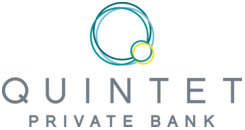This month:
Expert investment views:
One wealth manager explains what investors will need to see from the new government to restore confidence in UK Plc
A case is made for increasing exposure to European equities, now that potential risks have not materialised
Investors are cautioned that choppy waters lie ahead for the rest of the year amid big political changes in the US, UK and EU
The factors turning fixed income into an attractive asset class again are set out, hopes of inflation easing further being foremost
Featuring this month’s experts:




1. What connects (Sir) Keir Starmer and (soon-to-be Sir?!) Gareth Southgate?
One of the less obvious points is that while both do things intensely interesting to us people, not much of what they do is interesting to us as investors. Most policy announcements have as much financial impact as a missed penalty kick.
Of course, Downing Street is a little more important than Wembley. And some of the economic challenges and opportunities are worth considering from a sports perspective. After all, high expectations for world-dominating performance with a largely unchanged set of resources sounds exactly like running the England team!
The most important thing for the country’s new coach is to get the fans cheering. And that’s not about new training methods, or long-term plans, or backroom staff changes. It’s about quick, obvious results to build the confidence that this is the right manager to stick with for the long term
The most important thing for the country’s new coach is to get the fans cheering. And that’s not about new training methods, or long-term plans, or backroom staff changes. It’s about quick, obvious results to build the confidence that this is the right manager to stick with for the long term.
So, while the big problem for gaffer Starmer to address is growth (GDP per capita in the US is up by a third in the last two decades, and in the UK it’s been flat), there are a few quick wins the Labour Party should look for before embarking on the serious stuff. Install some fibre optic cables, fix some potholes, clean up some rivers. Celebrate the small victories. Only by doing that will they get enough fans onside (doesn’t have to be all fans) to get the support for a full team rebuild over the next decade: clean energy, planning reform, health service modernisation.

Ben Kumar
Equity Strategy at 7IM
2. A buying opportunity for European stocks and bonds
A bit like the unpredictable weather we’ve had over the past few weeks, politics has been a rollercoaster. As expected, the UK election delivered a Labour win. While there might be tax and broader fiscal implications at the individual level, the outcome wasn’t unexpected, which is why it hasn’t moved markets that much. At this stage, we’re neutral UK equities and, in our sterling portfolios, we’re increasing our gilt exposure. Conversely, the French election created a risk of a right- or left-wing absolute majority implementing unorthodox policies, including significant fiscal spending (though not likely going as far as arguing for exiting the euro), which could have impacted European and French market sentiment – as we saw over the past few weeks. This risk hasn’t materialised, presenting a buying opportunity for European stocks and bonds.
I and the Investment Committee were already preparing to increase our exposure to European equities, as we considered (and still do) the fundamental case to be compelling. We paused that idea ahead of the French election, mindful of the risks. With that risk now passed, we decided to go ahead
One lesson for investors trying to position for political outcomes is: don’t. They’re very hard to predict, and it’s even harder to predict how the market would react. The investments we make are driven by thorough research of the ‘fundamentals’ (such as valuation) and ‘technicals’ (such as momentum) of an asset class. Furthermore, we make these decisions in the context of our globally diversified portfolio, which we believe minimises the impact of local events, including (geo)politics. A wobble in one part of the portfolio can be offset by a gain somewhere else. Of course, this doesn’t mean that one shouldn’t look at election outcomes. I and the Investment Committee were already preparing to increase our exposure to European equities, as we considered (and still do) the fundamental case to be compelling. We paused that idea ahead of the French election, mindful of the risks. With that risk now passed, we decided to go ahead.

Daniele Antonucci
Co-Head of Investments and Chief Investment Officer at Brown Shipley, a Quintet Private Bank

Top Tip
There is never a dull day at present, what with global elections coming thick and fast, the resulting often dramatic policy changes and the drumbeats of war becoming louder and louder. The traditional advice is to largely leave portfolios alone during the summer, but it can be hard to relax knowing that so much is going on which might impact your returns and risk exposures if evasive action isn’t taken promptly.
Unless you want to spend your summer scanning the news and markets (rather than your favourite novelist’s latest), now might be the time to get an expert adviser in place. Not only will you be on course for far superior results, you will also be able to truly take time out. Why not let us arrange some no-obligation discussions with leading wealth managers so that they can take the strain of monitoring your portfolios? I have yet to meet a user of our service who has regretted gaining this peace of mind!

Lee Goggin
Co-Founder
3. “In a world full of adversity, we must still dare to dream” - Rob Burrow
Despite the political jousting in France and the UK, and the upcoming election in the US, financial markets have remained remarkably stable with measures of market volatility near their lows.
Investors have continued to absorb a steady decline in the number of interest rate cuts expected for the US, UK and Europe this year as central banks have stuck to their data-dependent philosophy in the face of slower than expected reductions in inflation. Only the European Central Bank has made an interest rate cut so far with the Bank of England expected to be next as early as August or September, and the US Federal Reserve following in November. Despite this material change in expectations, bond markets have behaved reasonably well with UK gilts only down 2.5% at the half year point, and global equities continue to power ahead, dominated by the performance of technology stocks.
The second half of 2024 promises to be more eventful as the noise steadily increases around the US election, European politics remains in the spotlight, and we learn the actual economic plans of the new UK Chancellor of the Exchequer
Looking at the global economy more broadly, we expect to see growth move back towards trend levels. GDP forecasts for 2024 have been revised down in the near term for the US but we see improving expectations for the UK and Europe, albeit still below the US and anaemic in real terms.
The second half of 2024 promises to be more eventful as the noise steadily increases around the US election, European politics remains in the spotlight, and we learn the actual economic plans of the new UK Chancellor of the Exchequer. Market and investor sentiment are forever changing and so we will continue to navigate client portfolios through what will inevitably be choppy waters.

Rosie Bullard
Partner – Portfolio Manager at James Hambro & Partners
4. Fortune favours fixed income again
So far in 2024 most of the key factors underpinning our ‘base case’ are playing out as expected. Our view was that a cooling of economic activity and inflation would be a positive backdrop.
This environment has driven a rally across stock markets. The US has continued to lead the tables, led by a small cohort of technology companies, but all markets have generally enjoyed this environment. The enthusiasm has been justified but it does lead us to question what might be possible in the coming months. Our expectation is that we can continue to make progress, even if the potential for short-term returns has been limited by recent positivity.
With valuations across most markets still ‘about right’ and growth in corporate earnings and profit margins expanding again, it would be strange – in the absence of something unexpected – to see a major market downturn.
More recently better news on inflation, signs that the US economy is moderating and the word from central banks that rate cuts are coming, fixed interest markets have started to make positive gains
Fixed interest returns lagged equities as inflation concerns lingered. At the start of the year, expectations were for six or seven cuts in the US by the end of January 2025. As the year has developed this has amounted to two. We were never in the six or seven camp, but we did expect more than two.
More recently better news on inflation, signs that the US economy is moderating and the word from central banks that rate cuts are coming, fixed interest markets have started to make positive gains. There have been a range of returns across different markets and our favoured areas have done well. We expect further progress and positive returns from the remainder of the year.

Tom Hibbert
Multi-Asset Strategist at Canaccord Genuity Wealth Management
Important information
The investment strategy and financial planning explanations of this piece are for informational purposes only, may represent only one view, and are not intended in any way as financial or investment advice. Any comment on specific securities should not be interpreted as investment research or advice, solicitation or recommendations to buy or sell a particular security.
We always advise consultation with a professional before making any investment and financial planning decisions.
Always remember that investing involves risk and the value of investments may fall as well as rise. Past performance should not be seen as a guarantee of future returns.




